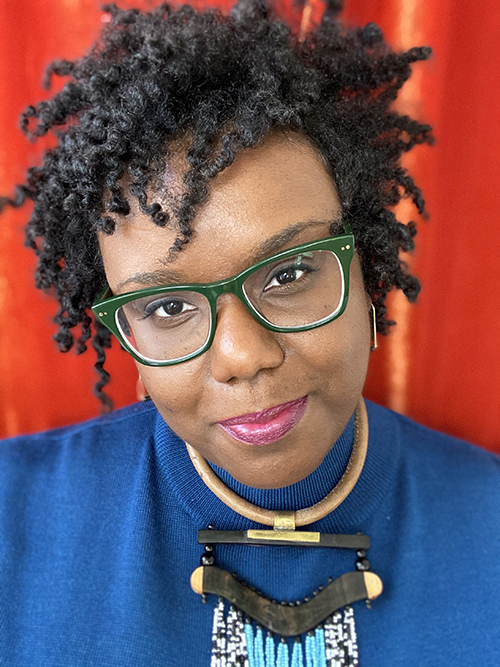Meet Assistant Professor of English and Africana Studies Jakeya Caruthers, PhD
September 22, 2021
Jakeya Caruthers, PhD, is a new assistant professor of English and Africana Studies. Her research attends to black political aesthetics within 20th and 21st century cultural production and to the study of race, gender, sexuality and state discipline.

Degree: PhD, Social Sciences, Humanities, and Interdisciplinary Policy Studies in Education (Anthropology), Stanford University, 2016
Research Interests: Black Political Aesthetics; Black Popular Culture, Literature, and Media Representation; Black Feminist Theory; Anti-Carceral Feminism; Art and Visual Culture; Black Memory and Nostalgia
Hometown: I grew up in Knoxville, Tennessee, but Oakland, California became a dear second home.
What did you do before coming to Drexel?
I was Assistant Professor and Chair of African & African American Studies with a courtesy appointment in Women’s and Gender Studies at Berea College.
What book, movie, show or podcast would you recommend?
I love documentaries! A recent recommendation would be the documentary My Name is Pauli Murray, and an older recommendation would be The Agronomist – both of which profile radical thinkers and freedom fighters (The Agronomist documents the life of Haitian journalist Jean Dominique). The ethics, the poetics and the analyses that emerge from their work and struggle are instructive and moving. To that end, I’d also recommend Toni Cade Bambara’s and June Jordan’s essays in the CUNY “Lost and Found” Series. Beyond a closer look at their thinking on craft, emotion, life and the urgent political, moral and cultural issues facing their community, their radical vision for the university feels like a timely provocation these days, especially as more people are posing critical questions about the shape and function of higher education.
What have you been working on recently?
I’ve been working on the second volume of a co-edited series on abolition feminisms as well as my own book-length project that examines literature and performance to explore ways black folks manage racial terror through a sense of humor endowed with affects like curiosity or a pluralist notion of political legitimacy. I’m also excited to develop a project on the politics of black embodied absence in visual art and popular media.
What is your favorite thing about Philadelphia?
I’m still getting to know the city, but I’m already loving Philadelphia’s vibrant art and music scene. It’s such a treat to walk around the corner and find a gorgeous foreign film being screened under the stars.
When was the last time you did something “for the first time”? What was it?
I dipped my toes in the Caribbean Sea. It was amazing.
What or who inspires you?
I’m inspired every day by things I store in my (infinite!) browser and social media bookmarks: a provocative quote by Sun Ra (about Philadelphia!) or a beautiful photograph by artist Nydia Blas or the complete Google Books archive of Negro Digest/Black World. As an academic, of course, I favor deep and extended study, but I’m constantly sharpened and awakened by new takes and “discoveries” shared generously by great minds I appreciate. The lockdown conditions of the pandemic were especially helpful in breaking down barriers of access to talks and conversations, all of which have been incredibly instrumental to my teaching, research and general thinking.
What was an impactful moment from your own college career?
In undergrad, I was fortunate to have a five-year fellowship that allowed me to study abroad in Ghana and exposed me to the very possibility of graduate study. My study abroad experience yielded some of my most enduring friendships, but more importantly, it gave me the freedom to enrich my academic perspective. I still have and refer to texts and ideas I encountered in those courses!